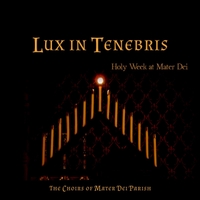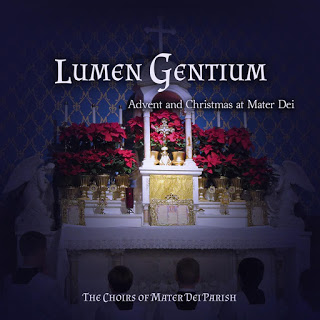The Psalmist writes:
For the zeal of thy house hath eaten me up: and the reproaches of them that reproached thee are fallen upon me.
Psalm 68:10
In the Gospel of St. John, the disciples connect this psalm verse particularly with the event of Christ driving out the money changers from the temple:
And he found in the temple them that sold oxen and sheep and doves, and the changers of money sitting. And when he had made, as it were, a scourge of little cords, he drove them all out of the temple, the sheep also and the oxen, and the money of the changers he poured out, and the tables he overthrew. And to them that sold doves he said: Take these things hence, and make not the house of my Father a house of traffic. And his disciples remembered, that it was written: The zeal of thy house hath eaten me up.
John 2:14-17
Zelus Domus Tuae – SATB
In this time of emptied churches, I also feel a bit of that zeal–perhaps to a fault. Back in April, I channeled my inner fury into the following motet (antiphon) for SATB:
I am releasing the score, available at the bottom of this post, under Creative Commons (CC-BY-NC-ND).
Use of the Antiphon
Zelus Domus Tuae stands out as the antiphon with which Tenebrae of Holy Thursday begins. If a polyphonic version is permitted at that time, I think the intensity and stark opening of this setting–it ought to be even more forceful than in the above video–would start Tenebrae off with a bang. It could also be appropriate to sing as a motet during Lent.
“Zelus Domus Tuae” is also the motto on Fr. Zuhlsdorf‘s coat of arms. He writes a bit about it here.
In addition, the motto was important to St. Francis Caracciolo, who repeated it frequently before the Blessed Sacrament. After his death, St. Francis’s heart was discovered to have been burned up within his body and the words, “Zelus domus Tuae comedit me” inscribed about it. I wonder if his being the patron of Italian cooks might be an additional connection with Fr. Z, who frequently posts his culinary tastes.
Now that I think about it, I wonder if there is a hidden message here that Italian cooking might give you heartburn? Hmm.
About the Featured Image
The featured image is Valentin de Boulogne’s Christ Driving the Money Changers out of the Temple. It is in the public domain in the United States, according to Wikipedia.






Mr. Drake,
I’m performing your Zelus domus tuae at St. Andrew’s Episcopal Church, Denver, this Sunday (with a choir of 6 staff singers). We’re going to repeat the opening section at the end (essentially adding a Da Capo al Fine, with the Fine at bar 13). I hope making this a ternary (ABA) form does not violate anything according to your sensibilities, but I wanted to make it just a bit longer. I love the righteous anger conveyed in the dissonances in your setting, fitting Jesus’ feelings towards the moneychangers. If it goes well, I’ll send you a link to the service so you can hear it. If it doesn’t go well, I’ll program it again some other time when the full choir’s back! 😉
Timothy J. Krueger, Choirmaster
Hello, Mr. Kreuger,
I’ve had trouble with email notifications not going through when comments are posted, so I just saw this. My apologies for not replying sooner.
That repetition does not offend my sensibilities :). Actually, your repetition is not far off the mark. During matins of Holy Thursday, the antiphon Zelus Domus Tuae would be repeated entirely after the Psalm. So there is an implicit ABA form in that usage of the piece (antiphon-psalm-antiphon).
It is interesting to see the use of Latin at an Episcopal church. Though I hope not to violate anything according to your sensibilities, I am hopeful that, perhaps through this, a seed might be planted so that some souls may eventually come home to the Catholic faith. I unite my prayer to Christ’s, “That they all may be one, as thou, Father, in me, and I in thee; that they also may be one in us; that the world may believe that thou hast sent me.”
God bless,
Michael Drake
I forgot to say thank you for singing the piece. I hope it went well, and I’d be very interested in hearing a recording!